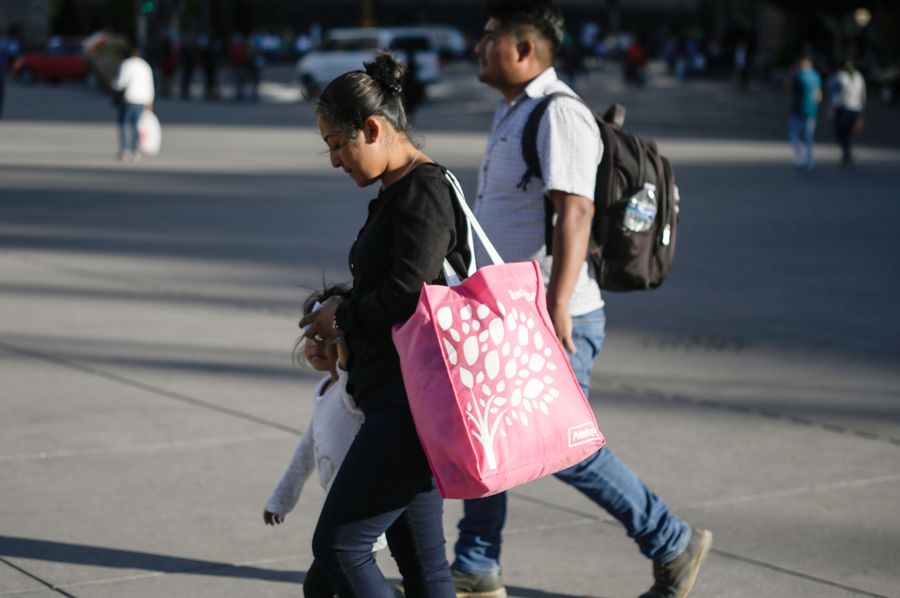
A person carries a reusable bag as an alternative to the recent ban on plastics, in Mexico City, capital of Mexico, on January 28, 2020. (Xinhua/Francisco Canedo)
As one of the largest and most heavily populated urban centers in the world, Mexico City generates about 13,000 tons of trash a day, only 4,100 of which is recycled, according to authorities.
MEXICO CITY, Jan. 29 (Xinhua) -- Seemingly overnight, Mexico City residents kicked the habit of relying on flimsy supermarket plastic bags to carry their groceries.
A city ordinance banning single-use plastic bags took effect on Jan. 1, instantly turning inhabitants into tote-carrying denizens with a greater awareness of their environmental footprint.
In a city of some 20 million people, the measure, which carries a fine of up to 8,000 U.S. dollars, is bound to have a considerable impact for the better.
"We believe that through this measure, Mexico City is contributing to improving environmental quality and also to an important global strategy," said Andree Lilian Guigue, head of the city's General Directorate of Environmental Impact Assessment and Regulation (Sedema).
With the bags out of the way, starting January 2021, businesses will also stop providing plastic straws and utensils.
However, Mexico City is hardly a pioneer in this area.
Worldwide China "is setting a good example by regulating plastics," said Guigue, adding Mexico City officials plan to contact their Chinese counterparts to "exchange experiences" in the field.
As one of the largest and most heavily populated urban centers in the world, Mexico City generates about 13,000 tons of trash a day, only 4,100 of which is recycled, according to authorities.
Kicking the plastic bag habit is a good place to start cleaning up the environment.
"The measure's acceptance is very important. People seem to be very committed and doing everything they can to ensure the law is abided by," said the official.
"It's a commitment by the citizens, which we are told is over 85 percent, and we're very happy," said Guigue.
In addition to the capital city, 16 Mexican states have passed laws banning the distribution of single-use plastic bags.
Local shop owner Laura Diaz Serrano agrees with the new measure, saying that through environmental education, people "can become more environmentally friendly."
Since the initiative was first floated to ban single-use plastics two years ago, Diaz has been encouraging her customers to bring their own tote bags.
"First we gave them away, then we sold them and then people gradually got used to bringing their own bag," she said.
Not everybody is happy about the measure, especially those in the plastics industry.
Aldimir Torres, head of the National Plastics Industry Association (Anipac), said the new law passed without a clear legal framework.
"How is it possible that the fine is higher than the one for carrying a weapon," Torres said.
"We recognize that we have a major environmental problem and we understand the issue," he said, but the move should have called for a longer transition period.
To help the industry adapt, Mexico City authorities have put in place programs to promote technological innovation at companies, with expert advice and credit available to aid in the transition.
The city has also unveiled a program called "Zero Trash: Mexico City's action plan for a circular economy," with which it plans to take advantage of waste generated in the capital through recycling. ■



